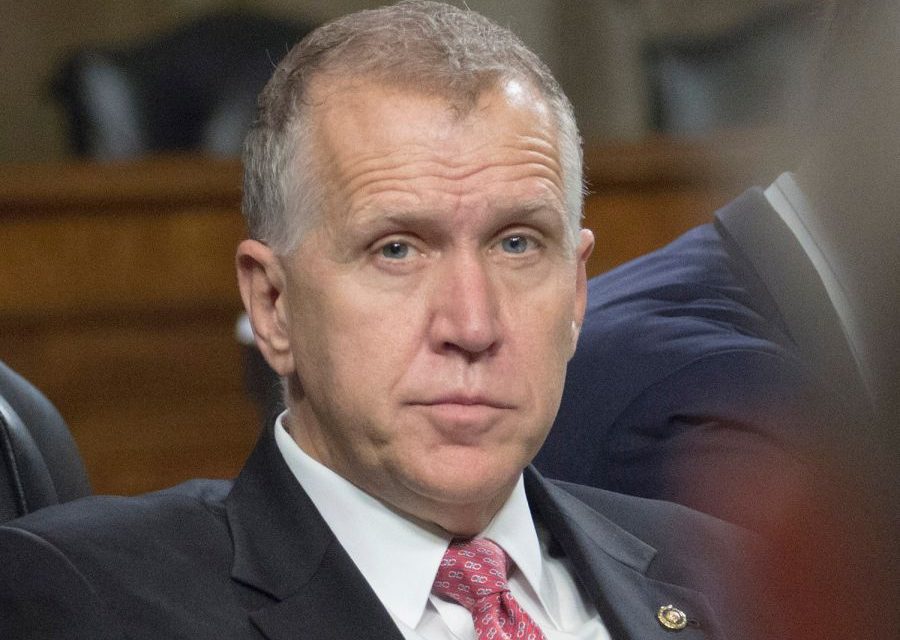It’s both good news and bad news that Senator Thom Tillis has decided not to run for reelection in 2026. A former Speaker of the North Carolina House of Representatives, Tillis was first elected to the U.S. Senate in 2014 when he defeated incumbent Democrat Kay Hagan. He was reelected in 2020 when his initially favored opponent Cal Cunningham’s poll numbers collapsed after revelation of an extramarital affair. Both times, he secured victory with less than 49 percent of the vote. He was widely considered one of the most vulnerable Republican senators up for reelection in next year’s midterms. Now the eventual Republican candidate will be lacking the advantages of incumbency and the seat could be even riper for the picking.
But the flip side of this news is that Tillis is the sole Republican senator to vote against opening debate on President Trump’s One Big Beautiful Bill because it is too punishing to the less fortunate. Senator Rand Paul of Kentucky also voted against beginning debate, but solely because the bill will explode the deficit. Tillis’s reward was immediate. Trump excoriated him on Truth Social and promised to identify and support primary challengers to end Tillis’s political career. Rather than face that challenge, Tillis immediately announced his retirement.
We’ve seen this movie before. Several Republican senators who stood up to Trump in his first term did not run for reelection. I’m thinking of Jeff Flake of Arizona, Bob Corker of Tennessee and, most recently, Mitt Romney of Utah. Similarly, in the House, of the 10 Republicans who voted to impeach Trump over the January 6 insurrection, only two survived the next primary season. Only one, Rep. Dan Newhouse of Washington, remains in Congress today.
So, the bad news is that Tillis’s retirement reinforces the impression among Republican lawmakers that the price of saying ‘no’ to Trump is losing your seat and all the perks that come with it. In effect, though we might hope that Tillis’s opposition to the One Big Beautiful Bill will give other GOP members courage to buck the president, the opposite is the likely outcome.
And that doesn’t bode well for the prospects of stopping the bill. So far, the Senate has only agreed to begin debate. They still have to vote to end debate. And then they have to actually pass it. Even if they do, the House has to pass it without amendments or it comes right back to the Senate for another round of debate and more votes.
Whether all this can be accomplished is still in some doubt. But it would have helped if Tillis had kept his retirement plans to himself a while longer, or at least not caved so swiftly in the face of presidential pressure.







All of this.
I understand (at least to some degree) all the reasons* why it’s hard for centrist/pro-democracy Republicans to break with Trump. Still, the rueful joke about there being a word for people who went along with the Nazis though they didn’t agree with Hitler on everything (the word is “Nazis”) applies. In the future, there will be a word for Republicans who didn’t break with Trump as he destroyed US democracy and established an authoritarian regime, and that word will be “Republicans”.
And, as has been true for over a decade now, centrist Republicans in the Senate could put an end to all (well, most) of this overnight. All it would take is for 4 of Tillis, Collins, Murkowski, Paul, Collins (UT), and Young (IN) to cut a deal with Chuck Schumer for control of the Senate (e.g., chairmanships, a handful of issue concessions, level funding the last Biden budget, whatever), and the “MAGA Revolution” comes to a grinding halt.
*it’s their lifelong party; they agree with some of what he’s doing; being in a coalition that includes Sanders/Ocasio-Cortez/etc. is mind-blowingly difficult to imagine let alone do; the prospect of social ostracization is daunting; the prospect of your family being assaulted or killed is worse…to name a few.